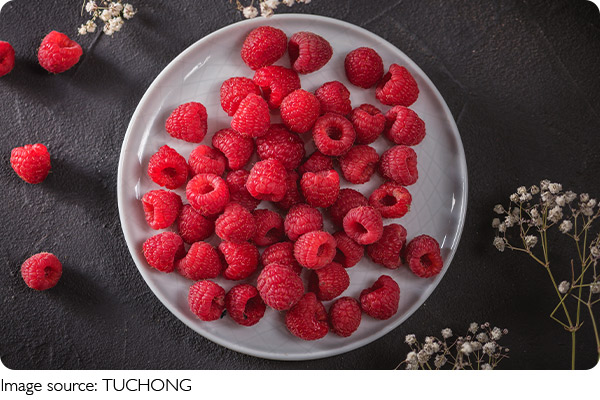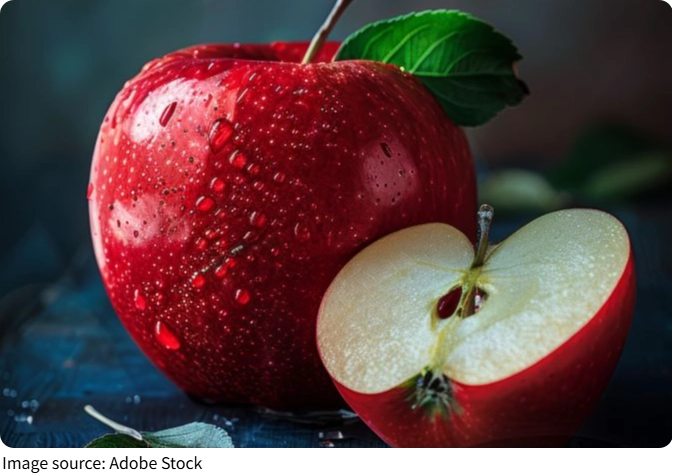Low-Sugar Fruit Choices

In today's world, managing our health is more important than ever, especially for those who need to keep an eye on their blood sugar levels.
Whether you have diabetes or are following a low-sugar diet, choosing the right fruits is key to maintaining a healthy lifestyle. Fruits are delicious, nutrient-packed, and full of natural sweetness, but some fruits are higher in sugar than others, which can impact blood sugar control.
So, which fruits are the best choices for managing blood sugar while still enjoying the sweet taste of nature's candy? We're here to explore some of the best low-sugar fruits that not only taste great but also offer numerous health benefits.
Why Blood Sugar Control Matters
Before diving into the list of low-sugar fruits, it's important to understand why controlling blood sugar is so vital. When we consume foods that contain high amounts of sugar, our bodies convert them into glucose (blood sugar). For those with diabetes or anyone monitoring their blood sugar, keeping this level stable is essential to avoid spikes and crashes that can lead to complications. A low-sugar diet helps regulate insulin levels, maintain energy, and reduce the risk of long-term health issues.
Now that we know the importance of blood sugar control, let's look at some delicious, low-sugar fruit choices that can fit seamlessly into a healthy, balanced diet.
Top Low-Sugar Fruits for Blood Sugar Control
1. Berries (Strawberries, Blueberries, Raspberries)
Berries are a fantastic choice for those watching their sugar intake. Not only are they naturally low in sugar, but they're also high in antioxidants, fiber, and vitamins, making them a powerhouse for overall health. Strawberries, blueberries, and raspberries all contain about 5-7 grams of sugar per 100 grams, making them perfect for blood sugar control. Plus, the fiber in berries helps slow down the absorption of sugar into the bloodstream.
2. Avocados
While not typically thought of as a fruit, avocados are an excellent low-sugar option. They are packed with healthy fats and contain very little sugar, making them ideal for blood sugar regulation. Avocados are also high in fiber and contain potassium, which helps maintain a healthy heart and regulate blood pressure. A great addition to salads, smoothies, or as a topping for toast, avocados are a versatile fruit to include in a low-sugar diet.
3. Watermelon (in moderation)
Watermelon is often thought of as a sweet, sugary fruit, but it actually has a relatively low sugar content compared to other fruits like grapes or bananas. A 100-gram serving of watermelon contains around 6 grams of sugar, making it a great hydrating and refreshing option for people managing their blood sugar. The key, however, is moderation. Since watermelon has a high water content, it's easy to overeat, so be mindful of portion sizes.
4. Apples (Green Apples)
Apples, especially green varieties like Granny Smith, are a great low-sugar fruit. With about 10 grams of sugar per 100 grams, apples are not as low in sugar as berries, but they offer excellent fiber, which helps in the slow absorption of sugar. Apples also provide important vitamins like vitamin C, potassium, and antioxidants. A perfect option for a mid-day snack, apples can satisfy your sweet tooth without causing blood sugar spikes.
5. Peaches
Peaches are naturally sweet and low in sugar, making them an ideal choice for blood sugar control. A medium peach contains about 8 grams of sugar. They are also rich in vitamins A and C, as well as fiber, which promotes healthy digestion. Peaches are especially great in the summer, but they can be enjoyed fresh or canned (in their own juice) year-round.
Fruits to Be Cautious With
While many fruits are packed with nutrients, it's also important to be mindful of those that have a higher sugar content. Some fruits like grapes, bananas, and pineapples can cause blood sugar spikes due to their high glycemic index. If you're managing your blood sugar, it's best to enjoy these fruits in smaller portions and alongside foods that help slow down sugar absorption, like protein or healthy fats.
Incorporating Low-Sugar Fruits Into Your Diet
Adding low-sugar fruits to your daily routine doesn't have to be complicated. Here are some simple ways to incorporate these fruits into your diet:
• Smoothies: Combine your favorite berries, avocado, or even green apple with some unsweetened almond milk for a delicious, nutrient-packed smoothie.
• Snacks: Keep cut-up apples, berries, or peaches in the fridge for a quick, healthy snack whenever you need a pick-me-up.
• Salads: Top off your salad with some fresh strawberries, blueberries, or even avocado for a sweet and savory twist.
• Desserts: Use berries or peaches as a topping for yogurt or mix them into a low-sugar, homemade fruit salad for a naturally sweet dessert.

Expert Opinion: The Role of Fruits in a Low-Sugar Diet
According to registered dietitian nutritionist, Sarah O'Neill, "Fruits are an important part of any healthy diet, but for those managing blood sugar, it's crucial to choose fruits with a lower glycemic index and higher fiber content. This helps prevent blood sugar spikes while still reaping the health benefits that fruits offer, such as antioxidants, vitamins, and minerals."
Conclusion: Savor the Sweetness of Low-Sugar Fruits
Managing blood sugar doesn't mean you have to give up the natural sweetness of fruits. With the right choices, you can enjoy a wide variety of fruits while keeping your sugar levels in check. By adding berries, avocados, peaches, and other low-sugar fruits into your daily diet, you can maintain your health without sacrificing flavor.
We hope this article helps you make informed choices when it comes to fruit selection. Which low-sugar fruits do you enjoy the most? Let us know in the comments below!
-
 Forest Berry WondersYou Won’t Believe What’s Hiding in the Forest—These Wild Berries Are Bursting with Flavor and Natural Power!
Forest Berry WondersYou Won’t Believe What’s Hiding in the Forest—These Wild Berries Are Bursting with Flavor and Natural Power! -
 Prep Tricks For Glow SkinWant Smooth Makeup All Day? Try These Prep Picks For Shine, Glow, Or Matte Perfection!
Prep Tricks For Glow SkinWant Smooth Makeup All Day? Try These Prep Picks For Shine, Glow, Or Matte Perfection! -
 Blusher Talk: Which Win?Glow Up Showdown: Which Blush Type Wins the Beauty Crown?
Blusher Talk: Which Win?Glow Up Showdown: Which Blush Type Wins the Beauty Crown?